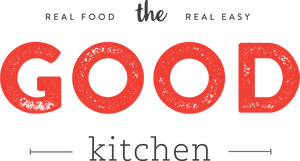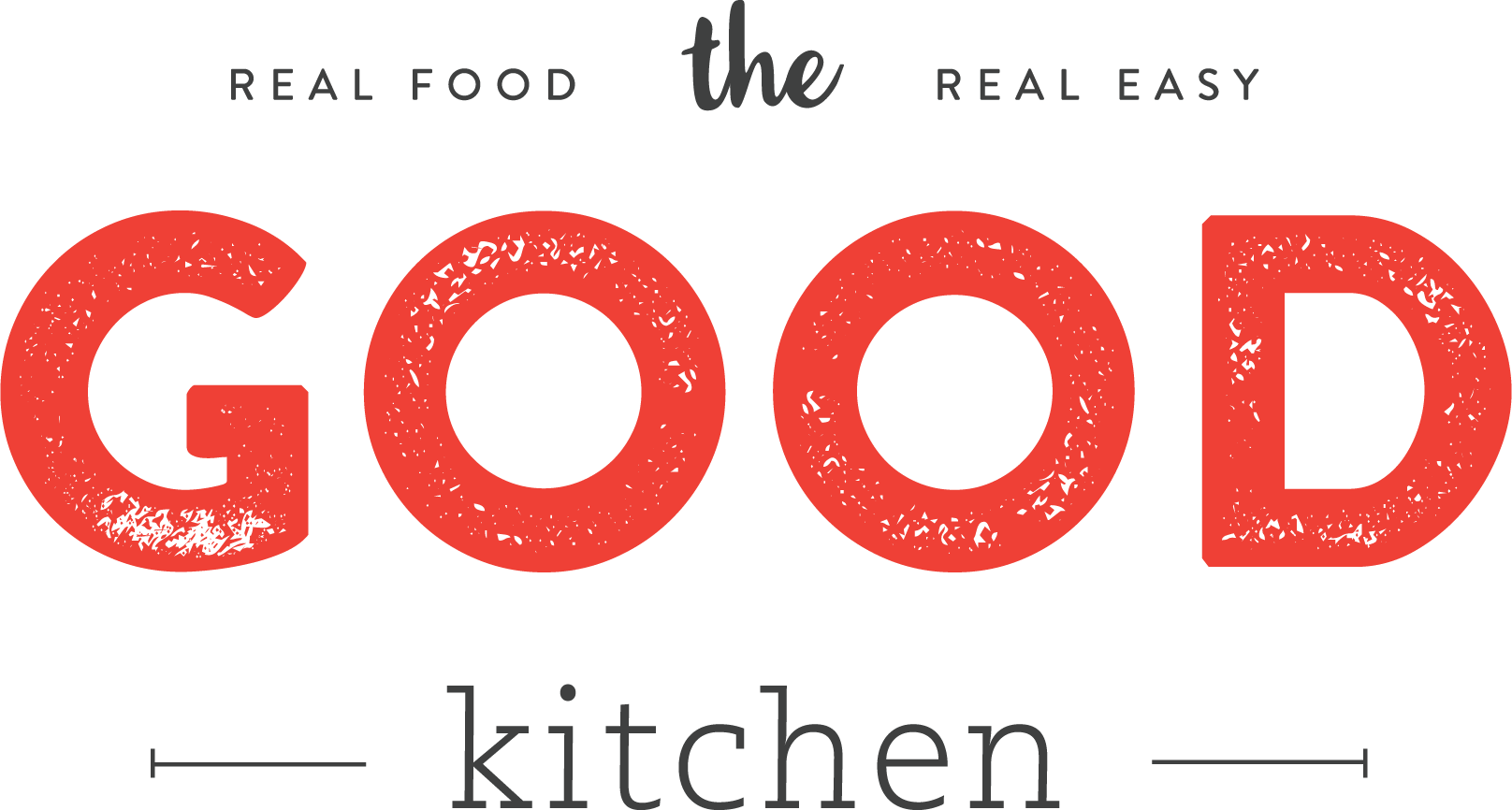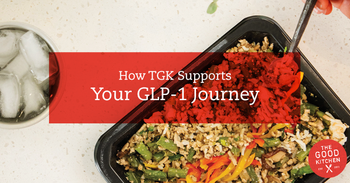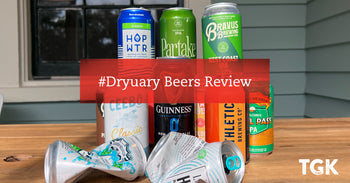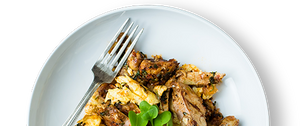True Origins
modPALEO has blossomed over the years thanks to your dedicated support. Find out how we got started, and how we work to stay true to those original values.
The True Origins of modPALEO
modPALEO has blossomed over the years thanks to your dedicated support. Find out how we got started, and how we work to stay true to those original values.
In this 25 minute episode, Peter Haas (Train Smart Digital) and modPALEO co-founder Carter Lewis discuss:
- How a Commitment to Better Nutrition Started Close to Home
- A southern virtue provides the spark for modPALEO
- How that spark caught fire and turned into a business
- The mod(ern) Paleo Approach
- Could you do it like modPALEO?
- How much time would you need to invest to make a modPALEO meal?
- Can clean eating really boost your performance?
- The true cost of cheap food
Download a PDF of the Transcript here. Or read below.
The Transcript
Peter Haas: You know, we've talked a lot about your back story. Tell me more about not just how you got going, but why you got going initially. What need did you see that wasn't being met? Why did you decide to try to fill that?
Carter Lewis: Originally we got started because people at our gym looked to my wife, Amber, and I as folks who were kind of doing something they were hearing a lot about. We were kind of like an educator. We were somebody who was already doing what they were interested in, so they would ask us questions about Paleo and why sourcing matters, and where your stuff comes from. We realized that there was a place there that folks weren't really getting their needs met.
We started the cooking part of that basically just out of having a friend come over for dinner, and we sent her home with some Tupperware of leftovers. She was like, "Wow. This is fantastic. I didn't have to cook all week. Everything was good. I knew where it came from. That's pretty cool. I'm too busy to handle all this stuff myself."
Once we did that for her the next week she said, "Hey. What if I give you a hundred bucks, or whatever it was, to basically do this again for the whole week? We'll just plan it and I'll pay you for it."
That happened and then two other people at the gym said, "Hey. I heard you did this for so and so. Can I get in on that?" That's kind of how really the basis of it started.
We launched a pilot program four and a half years ago of ten people just to see if it could work. The next week we had twenty people say, "Hey. I'd like to do that too." I was like, "Whoa. Now we got to cook it for thirty people?" When I say we at that point I mean Amber. She did everything.
Peter Haas: Nice.
How a Commitment to Better Nutrition Started Close to Home
Carter Lewis: That's kind of how we got started. Why we got started is because we saw a change in our performance. I mean that as a lifestyle, working out, sleep, all those things that people already know about. All of those things changed for us.
Amber's mom had some long undiagnosed heart diseases, multiple that where the doctors were treating the symptoms and not the issue. She was on all these medications and stuff. Once we did our own research and found out that eating kind of the way we do would affect somebody in a very positive way like that we introduced that to her. Throughout the remainder of her life she had a very good quality of life. It changed everything about how she felt and how she dealt with day to day stuff. Unfortunately her heart disease was too far gone to really have a significant impact. That was kind of the impetus when Amber realized this makes a difference in people and also is a kind of way to honor her mom. That's why we started.
A Southern Virtue Provides the Spark for modPALEO
Peter Haas: Okay. You guys got started Crossfitting, and then you guys implemented lifestyle changes, especially the nutritional part and started doing a Paleo type diet, and saw a huge change there, and then got Amber's mom going, and saw huge changes there. Then essentially people started asking you about stuff or asking about trying to follow a Paleo type diet and how to do that, because at the time there just wasn't a lot of information out there.
I'm really curious about what caused you to take that first step? What made you actually cook a meal for another person as the step from just telling them to doing something for them? Do you see what I'm saying? What made that step happen?
Carter: Let's see if I can answer your question correctly. I think that actually going to cook for somebody else because they asked. Is that where you're going?
Peter: Absolutely. I'm just curious. When somebody's like, "Well, how do I do this?", I personally have always just been like, "Well, here's some recipe sites." That's what I mean.
Somebody said, "How do I do this?", and then you said, "Yeah. I'll make the meal for you." I'm just really curious about that. I think that says a lot about you and Amber and why you guys got into this and that step. I mean, do you see what I'm saying? It's funny, because you're inside looking out, because that was like your natural thing to do in taking that step. That's just not what I would have done as the next step. Do you see what I'm saying?
Carter: It just started out as hospitality honestly. We're both from the South. I'm from West Virginia, so you can already bet it's a different story, but Amber's from North Carolina, so it's part of the southern hospitality. She's a good cook. Her mom taught her how to cook. She's really good with stuff. Like I said, somebody just came over just as a friend, just to have dinner with us. We sent her away with some extra food. Then she said, "Hey. This is a lot easier if you do it. If I give you money, would you do it?"
Peter: Got you. You really started helping her out, because she thought the quality of your food was awesome, and obviously it was more convenient for her, and she was really enjoying it. I assume she started seeing differences in her performance and body composition and so she started noticing a lot of positive changes?
Carter: Big time.
How That Spark Caught Fire and Turned into A Business
Peter: Good. Has that stayed pretty constant as you guys have gone along? Like you said, you were doing it from a hospitality standpoint for that first meal. How has that changed over the years?
Carter: I think at the base it hasn't. I don't think any successful small business owner would still be in business if they didn't care about what they do. That's our goal is to just get good food to people who don't have time or interest to make it happen for themselves. I don't think the root cause has changed any at all. The fact that we monetized it is, well, we were tired of working for other people.
Peter: Sure. You were already receptive to going in an entrepreneurial direction and this opportunity manifested. It manifested in a lot of ways that you guys were passionate about and excited about.
Carter: Well, I had already quit my career that I had been for fifteen or sixteen years, which is advertising, and I was running a boot camp, so I already had that spirit behind me. Amber was still working for one of the big buildings up town.
Honestly this thing presented itself. It wasn't something she was looking for. This opportunity presented itself based out of that conversation we just had with this girl. Her name is April. Big ups to April. Then there was a need. There was a way out I guess. There was a successful strategy for getting out of working for somebody else and doing things on your own terms around something that you actually care about, something that you're passionate about, and not worrying about what other people want to direct you towards.
The mod(ern) Paleo Approach
Peter: Got you. Laddering up, so you guys have been going over the years. Can you walk me through, in just a couple minutes, very, very big picture, what you guys do from start to finish in terms of from the food existing in a farmer’s field to somebody putting it in their mouth? Can you walk me through the steps that are involved in that?
Carter: Sure. Initially, like I said, we started small. We've kind of ramped everything from the way that Amber and I ate.
We would go to the farmer's market on Saturday. We would prep and cook all day Sunday and you'd have your meals for the week. Our business initially started as that. We did the same thing for other people. We were supplying a week's worth of food to folks by dealing with the same small scale producers that we used.
First ten to twenty folks it was just, "Hey. Instead of going to Shelly Profit for our own beef, hey, Shelly Profit, can you supply us with twenty times that?" We scaled from there.
Once you get to a certain level you have to scale everything, so some of those really small scale producers we've either added a second or a third or we've gone with a larger scale producer.
The quality of what we do hasn't changed. We still do the same thing we did when we started, because it's based off of how we eat and our own opinions on how other folks should eat, the experiences that we have through our own research, and through our personal development.
The way that it goes from farm to fork, unfortunately that term is overused, it's literally that. We have fresh ingredients coming from a truck driven by a farmer into our back door. We take it into our refrigerator. We cook it on our kitchen. We put it back in the refrigerator. We put it in packaging, and we ship it out once they place an order. We handle all the sourcing, the cooking, and the packaging, and the distribution, all internally from one hub.
Could you do it like modPALEO?
Peter: Got you. Okay. If I wanted to do that I would basically have to go to my local farmer's market. It's not like the grocery store. You have to go to separate [vendors]. This guy does beef, and this lady does eggs, and then this other lady does these vegetables, and this other lady does something else. You're working your way through the market.
To complete my shopping list: One, I would have to get all my recipes together and figure out what recipes and what ingredients I needed. Then I would have to go to a farmer's market and source all that stuff and find all that stuff. A lot of it's seasonal, so sometimes stuff might not be on my list. From there I would need to go home and cook everything. I would one, know how to cook, and then two, I would. How to cook and how to make the meals and the recipes and everything, put that together. If I was going to prepare everything for the whole week and not just for the day, I would need to Tupperware everything out and put it in my fridge or freezer. Is that pretty accurate?
Carter: It's very accurate. Don't forget, we like to tell people there's also clean up to all that too.
Peter: Oh, yes. My favorite. Clean up and all the dirty dishes and everything. Obviously you guys do all that, but because of your scale you're able to just do that a lot more efficiently. You basically solve the cleanup problem for people that are looking to do that.
Carter: Yeah. We do it all, like you said, from recipe development and don't forget creativity in that, because everybody hates eating chicken and broccoli over and over again. So we do recipe development, sourcing the ingredients, prepping the ingredients, cooking the ingredients, and the clean up. Everything just comes to you, and it's already eaten. Once you're done you can throw away or recycle a plastic tray.
Peter: Got you. Yeah. Clean up's a snap. Making me think of the doing the dishes commercial thing, "Clean up's a snap."
How Much Time Would You Need to Invest to Make a modPALEO Meal?
Peter: How much time do you think that would take me? Say I was trying to do three meals. Actually let's say three meals a day. How much time do you think I would spend prepping, and sourcing, and clean up? I mean, just ball park in a week. How much do you think?
Carter: I mean, it would take us, as a couple. I can tell you from a couple from our own experience it would take Saturday morning, let's say 8:00 to 11:00 or 12:00 to hit all the farmer's markets, and then honestly the majority of the day on Sunday.
Peter: Got you. You're whole weekend.
Carter: Yeah. By the time you destroy your kitchen, cook everything, and then clean up your kitchen, put everything away, it's like, "Man. Let's sit down and watch the football game Sunday evening and then go to bed." That's about it.
Peter: Got you. So you were pretty much running the business for yourself. The business was for yourself.
Carter: I'm telling you the whole thing is scaled off of us. Like I said, I thought a second ago you were going to say, "When I do this for myself ...", you were going to go down the road of, "If I was going to start a business like this myself ..." We've actually had a lot of people approach us about that. You know, "How did you start?" I'm like, "You know what? You got to start with the relationships.”
Let me tell you from experience there's not a manual on how to do it. If there is a manual it's something that we or somebody like us is going to write, because it hasn't been developed yet.
Peter: No. I hear you. That's what I mean. It's one thing ... Like I was talking about that jump before, it's one thing to explain to somebody what a Paleo type diet is and the benefits that they can have from that, but it's another thing to be implementing it. That's the harder part in my opinion. That's why I think people have problems with it. It's not the knowing about it. It's the actual doing it.
Again, I was really fortunate, because I knew how to cook. But, I still find it tedious. That's the thing. I still find the prep tedious at times. I have all the strategies for that, but it’s still challenging.
Can Clean Eating Really Boost your Performance?
Peter: Actually, we didn't really talk about it before, but real briefly, somebody like me, somebody that's training hard that's interested in being more healthy, why ...? We didn't address that. What is the benefit? I know things have changed over the years, but if I'm eating just whatever we call regular is.
What are the benefits to me to moving to a more Paleo type diet, what you guys espouse in terms of what to eat in terms of ingredient-wise? What are the benefits to me for that?
Carter: I think it all goes back to inflammation, which is the root of all of this. Right? No matter whether you're concerned about your performance in the gym or just your lifestyle, how you feel during the day, how you sleep at night ... There's a lot of studies about other disorders, depression and all that, but basically if you take out the things that we've developed over the years in labs and genetically modified organisms, if you can get all of that stuff out of your diet and just eat real food, that's really what we are all about, both personally and as a company.
Peter: Got you. I'll just go and throw the big things that I've noticed. I mean, my performance got better. I did better in the gym. Yeah. When you say inflammation I just think of feeling beat up. You know what I mean? I definitely felt like my recovery was better from the gym. I got results faster. I slept better. I just felt better during the day. You know what I mean? I don't know if it's just from whatever you want to say, just eating cleanly or just not having junk in there. I just feel better all the time.
Carter: Sure. It makes you lethargic.
Peter: Not even just lethargic. My moods were more even and better. Yeah. It's like serenity. It's almost like a serenity thing. I say that because I noticed it, especially when I travel or I have to eat crappy food on the road, it's just like an itchiness that I start getting, that I'm just like, "Ugh," like when you miss an hour of sleep of something. You're just a little bit off. You're not jacked up, but it just starts adding up for you.
I assume you've also had people that lost weight. You've had people lose weight. I mean, you mentioned Amber's mom. You've seen people promote their own wellness and get away from some chronic disease stuff.
Carter: Absolutely. I think that the two big places that we make a difference is really in convenience, and then there's just the cleanliness of the food. We always get the feedback about those two things.
We have a testimonial on our site about this woman who had kids. The first time she didn't bounce back quite as easily. Then she found not only our food, but this sort of way of eating and cutting out all the junk. She got back from pregnancy very, very quickly She was able to rebound just again the way that she felt, how she really wanted to deal with her kids, her attitude. She was able to get back to the gym a little quicker, saw better results that way Yeah. The cleanliness of the food is what it's all about.
Peter: Yeah. I mean, I can appreciate her position as a parent myself. It's just like you have the kid, and you're focusing on the kid so much that that you are looking at convenience foods. You guys were talking about cooking the whole weekend. That's not possible when you've got a six month old or even a three month old.
Most convenience foods are terrible. Do you know what I mean? That's the thing. Hamburger Helper, boxed meals. That's the thing. When I run into people that are just like, "Oh. I just eat everything out of a box meals or bag meals, whatever." Invariably they are on some continuum of sick or not fit. You know what I mean?
I remember reading [the mom’s] story, and that was a really, really awesome thing, of just that emphasis on food quality first can make such a big difference in somebody's whole life. I think that's what's the amazing thing about it. Again, it's challenging because of the convenience, like we've already talked about.
The True Cost of Cheap Food
Peter: I'm sure you get this question a lot, but the cost .. A lot of people say, "Oh. Farmer's markets are so expensive," or, "Eating clean is so expensive.” What do you say in response to that?
Carter: I think a lot of people say this, but you can invest in your health upfront or after the fact. You can eat less than quality foods now, and skate around on the dollar menu, and see what that does to you internally, and then pay a doctor and a pharmacist later to fix it, or you can invest in your future in the present.
You can probably equate it to saving for your retirement. You're going to have it at the end or you're going to have it now. You're going to have your health at the end or you're going to have it now. You're going to have somebody fix it later or you're going to go ahead and play offense instead of defense. In terms of cost it's up to the individual.
In terms of when you look at small scale producers there's a lot that goes into how they're able to not only ... Think about their time, too. They come to a farmer's market, they have to make it worth their while. They work all week, as well as the weekends at the farmer's markets. They have to make money to support their own families. If you buy from them, you're supporting a local economy. It's also tax free.
At McDonald's they made that food cheap by A) it's not completely whole food, and I don't mean whole foods. I mean whole food, like really food. B) they do it on such scale and with so many preservative that it has a longer shelf life.
Cost is ... it's a tough thing to get around. The cost of our meals I feel our better than a lot of our competitors. I can say that. I feel like you pay for what you get.
Peter: Yeah. Absolutely. Yeah. I think about eating a Big Mac versus eating what you guys put out. Yeah. That's the thing. It's weird. I remember, again I was on the road and I hadn't had a McDonald's burger in like a long time. I ate one, and it was weird. It didn't taste that great, but there were like certain parts of my brain that lit up that hadn't fired in a while. It was like, "Oh, My god. What is this?" It's the same way when I eat candy or something. I don't like sugar. I mean, I can't really do sugar, but like Halloween if I have a piece of candy it's like, "Oh. That's what sweet, sweet tastes like." A part of my brain just like flips out, whereas when I eat what you guys put out it's just so much more...satisfying? You know what I mean?
Carter: Well, I hope so.
Peter: Well, not in the not getting hungry sense, but in the coming home sense. I think about what my parents and grandparents cooked. I get that feeling, as opposed to just like, "Oh. Fun." It's like, "Oh. This is good food."
Carter: It's like you always hear people say these days, "Sugar is the new tobacco." I mean, absolutely. Anything containing those sorts of ingredients trigger something in your mind that is very much like an addict, because in fact that's what it is. I mean, the more sugar you eat the more sugar you eat.
Peter: Yeah. Absolutely. I've seen people go down that route.
Carter: Once you cut that stuff out of your diet you learn to appreciate the taste of actual food, which I think is huge.
Peter: No. I totally agree. I think people just have to make that decision about they do want to be healthier and quality food factors into that. If you want to be healthy, not quality food just doesn't really factor into that. Again, you know, like your meals ... Going back to how do I do this on my own? Yeah. When you put it in that context, like me actually doing it in my own, not even factoring in the time saving and the clean up and the prep.
.Yeah. It's almost like I'm paying for ingredients only when I buy your meals. That's roughly what I was spending anyway for the ingredients. I'd already made that decision that I was going to eat high quality foods. Then the bonus for me was just like it already comes ... It's prepackaged. It's convenient. It's delicious. The cost was essentially something I was already comfortably with from paying before. Do you guys ever talk about that?
Carter: Yeah. Absolutely. If you look at ... You got to look at the quality, and you got to look at your grocery list. If you go out and buy all the things that we're putting in our meals, and keep all your receipts, and add them up, I think it's a different discussion. Right? It's costing roughly the same. We may even be cheaper if you go look at what you spend at Whole Foods and the farmer's market. Come home, look at that, and then, hey, you've already spent more than if you would've purchased our meals. You've also got all of the time to invest anyway, which I'm not a opponent of. I love for people to share the experience of cooking a meal. The reason that we exist is because people don't have the time.
Peter: Yeah. Absolutely. Cool. That's a really great conversation. I really appreciate you taking the time to go over all that stuff. I really liked hearing some of the stuff that you and I just hadn't talked about before in terms of back story and talking about ... Again, I really believe in what you guys do. I think what you guys do is awesome, even beyond the meals. I think your mission is amazing.
Carter: Thanks.
Peter: Thanks for taking the time to go over this with me, man.
Carter: Absolutely. Any time.
Peter: Take it easy man.
Carter: See ya.
